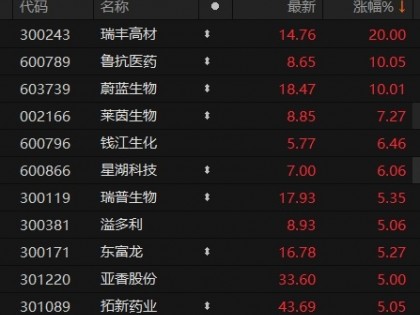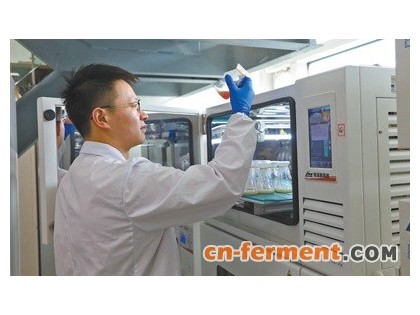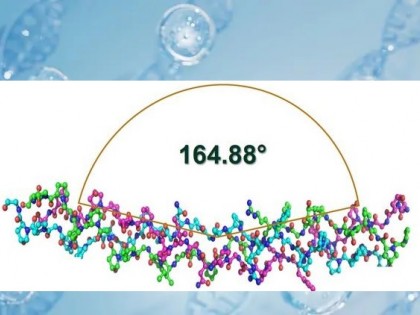图源:IISD
Synthetic Biology in the Context of Convention on Biological Diversity
在《生物多样性公约》背景下的合成生物学
Balakrishna Pisupati
Synthetic biology is rapidly developing and a cross-cutting issue, with potential benefits and potential adverse effects on the three objectives of the Convention on Biological Diversity, namely conservation, sustainable use and access and benefit sharing.
合成生物学是一门发展迅速、贯穿多领域的学科,它对于《生物多样性公约》的三个目标,即生物多样性保护、可持续利用和惠益共享具有潜在的积极与消极影响。
Synthetic biology (SB) has been garnering attention recently both for its innovative approaches to solving our health, development and related issues as well as impacts it will have on environment and socio economics. The Convention on Biological Diversity (CBD) and its Protocols namely, the Cartagena Protocol on Biosafety and the Nagoya Protocol on Access to genetic resources and Benefit Sharing (ABS), have started focusing on understanding the technology and its impacts on environment and biological diversity.
最近,合成生物学(SB)因其对健康、发展等相关问题提出的新方法和其对环境和社会经济学的影响而备受关注。《生物多样性公约》(CBD)及其《卡塔赫纳生物安全议定书》、《关于获取遗传资源和公正和公平分享其利用所产生惠益的名古屋议定书》已关注到这一技术及其对环境和生物多样性的影响。
The CBD COP 14 meeting held in 2018 extended timeline of the Ad Hoc Technical Expert Group (AHTEG) to continue provide an expert input to the Subsidiary Body on Scientific, Technical and Technological Advice (SBSTTA) who in turn will make recommendations to the fifteenth meeting of the Conference of Parties (COP 15) to the CBD in 2020 to decide on how to deal with SB products and organisms. It is therefore time for countries and stakeholder groups to discuss the implications of SB to the conservation and sustainable use of biodiversity and the fair and equitable sharing of benefits arising from the utilization of genetic resources.
2018年举办的《生物多样性公约》第14次缔约方大会(CBD COP14)延长了临时技术专家组(AHTEG)的工作期限,专家组继续向科学、技术和工艺咨询附属机构(SBSTTA)提供专家意见,后者将在2020年的CBD COP15上建言如何处理SB产品和生物。因此,各国和利益攸关方应探讨SB在以下方面的影响:生物多样性保护,生物多样性可持续利用,公正和公平分享遗传资源利用所产生的惠益。
The CBD COP 14 also called upon Parties and other Governments, taking into account the current uncertainties regarding engineered gene drives, to apply a precautionary approach to only consider introducing organisms containing engineered gene drives into the environment, including for experimental releases and research and development purposes, when scientifically sound case-by-case risk assessments have been carried out and risk management measures are in place to avoid or minimize potential adverse effects, as appropriate.
考虑到当前基因驱动技术中出现的不确定性,CBD COP14呼吁各缔约方和政府采取预防措施,只考虑向环境中引入基因驱动生体物(的影响),包括出于实验研发目的。当进行科学合理的个案风险评估时,应采取适当的风险管理措施,以避免或尽量减少潜在的不利影响。
The 13th Conference of Parties (COP13) of Convention on Biological Diversity (CBD) held in Cancun, Mexico noted the conclusion of the Ad Hoc Technical Expert Group (AHTEG) on Synthetic Biology (SB) that living organisms developed through current and near future applications of synthetic biology are similar to Living Modified Organisms (LMOs) as defined in the Cartagena Protocol.
在墨西哥坎昆举办的CBD COP13上,临时技术专家组(AHTEG)对合成生物学(SB)的总结是:目前及日后,利用合成生物学发展的生物体与《卡塔赫纳生物安全议定书》中定义的“改性活生物体(LMOs)”有相似之处。
Defining Synthetic Biology
定义合成生物学
The current definition, as agreed to under the CBD, was considered as adequate to deal with current and future interests from science and policy perspectives. Emphasis needs to be made to ensure stakeholders use the same definition and not create additional and/or new definitions to ensure clarity. However, future developments and new dimensions in research should be borne in mind to deal with current definition of CBD.
根据《生物多样性公约》,现在的定义可以从科学和政策角度处理当前及今后的利益。需要强调的是确保利益相关者使用相同的定义,而不是创建额外的或是新的定义。但是,在面对CBD现行的定义时,应该考虑到未来的发展和研究的新维度。
Given the complexity of science and specificity of research on organisms and products, there is a need to further consider the following four situations while dealing with synthetic biology
a. Developing organisms
b. Developing organisms that get used as products
c. Developing products, and
d. Developing derivatives.
鉴于科学的复杂性和对生物体和产品的研究的特殊性,有必要在处理合成生物学时进一步考虑以下四种情况答:
a.开发生物体
b.开发可用作产品的生物体
c.开发产品,以及
d .开发衍生品。
It is suggested that CBD should consider the above situations while preparing for further discussions on synthetic biology.
建议CBD在准备进一步讨论合成生物学时应考虑上述情况。
Issue of Equivalence
等同性问题
Discussing the issue of equating synthetic biology organisms as living modified organisms (as suggested by the AHTEG in 2015 and decided by CBD COP 13) there is a need for understanding the issue of equivalence between the synthetic biology organisms and living modified organisms be assessed on a case by case basis.
将合成生物有机体等同于改性活生物体(2015年AHTEG提出,并在CBD COP13上通过)。讨论这个问题时需要了解合成生物有机体和改性活生物体是否对等,根据具体情况分析评估。
Considering the experience of the industry, the issue of equivalence will be impacted both by the definition, science and tools available to deal with impacts. Therefore, CBD needs to consider the issue of equivalence more seriously with a need to map out the method of creating/developing the organisms and their impacts in detail before the CBD COP 15 meeting so that the discussions can be complete and robust.
根据行业经验,等同性问题与定义,及处理影响时所用的科学和工具有关。因此,为确保讨论充分有效,CBD 需要更加认真地考虑等同性问题,在CBD COP15之前规划创造/研发合成生物有机体的方法和影响。
Availability of Tools and Readiness
工的可用性和准备情况
Discussions in China need to focus on the issue of readiness in the country to deal with synthetic biology organisms and products, considering the current regulatory as well as policy frameworks to assess the availability of tools as well as readiness.
在中国进行的讨论需要把重点放在该国处理合成生物学、生物体和产品的准备情况上,考虑目前监管和政策框架以评估工具可用性和准备情况。
While reviewing the tools, the need for consolidation of procedures and due diligence on issues such as generating safety data and assessments thereof cannot be ignored.
在检查这些工具时,不能忽略在生成安全数据和评估等方面对程序和综合分析的加强。
Dealing with Policy and Regulatory Aspects
处理政策及监管方面的事宜
Considering the research and development happening in China on synthetic biology products and organisms, there is a need to for developing and further strengthening the policy and regulatory regimes on SB in the country, in the context of CBD.
考虑到中国在合成生物产品和生物体方面的研究和开发,有必要在CBD的背景下制定和进一步加强该国的合成生物学政策和监管制度。
A national policy document on synthetic biology that considers the science, policy and practice elements will be needed soon to prioritize actions and encourage investments in this technology besides assessing the socio-economic implications of the technology and its products as well as the impacts on biodiversity. China can also be providing guidance and support to those countries that are in need for technical and policy support.
除了评估技术及其产品的社会经济影响以及对生物多样性的影响之外,还需要一份关于合成生物学的国家政策文件,该文件将考虑科学,政策和实践因素,以优先行动并鼓励对该技术的投资。中国也可以为那些需要技术和政策支持的国家提供指导和支持。
With CBD COP 15 in focus, countries, including China, need better clarity and understanding of the current definition on Synthetic Biology within the national context, considering the definition agreed to by CBD COP 13. With an agreed definition, it is critical for all stakeholders, including the scientists and industry to use the same definition and terminology to avoid misunderstanding and misinterpretation of issues and components related to SB. China, with its current interest in investing in SB need to focus on collating and consolidating actions and actors working on SB in order to prepare a roadmap on SB investments and deployment.
根据CBD COP13达成的定义,包括中国在内的各个国家应以CBD COP15为关注点,更好地明确并理解国家背景下合成生物学的现行定义。科学家和行业人士等全体利益悠关方须采用相同的定义和术语,避免对合成生物学相关议题产生误解。中国有兴趣投资合成生物学,应集中精力整合合成生物学方面的行动和专业人士,为合成生物学投资与部署制定方向。
With communication taking centre stage in societal acceptance and related socio-economic issues of SB, it is important to develop a clear communication strategy to deal with using and scaling up SB organisms and products.
随着有关合成生物学的社会接纳和社会经济的探讨逐渐占据主要地位,需要制定清晰的沟通策略帮助利用并推广合成生物有机体和产品。
With CBD COP 15 in 2020 slated to make decision on use and impacts of SB, it is time for scientists, policy maker, industry and local community representatives to sit and discuss the way countries need to develop and use SB products and organisms.
2020年CBD COP15将对合成生物学的使用及影响作出决议,科学家、政策制定者、行业和当地代表是时候坐下来探讨各国如何研发并使用合成生物学产品。
Dr. Balakrishna Pisupati is currently the Chairperson of FLEDG and Senior Advisor for M S Ramaiah Group of institutions in India. He is currently advising governments on issues of policy aspects related to synthetic biology.
Balakrishna Pisupati博士现任印度FLEDG主席、M S Ramaiah集团高级顾问,为政府提供合成生物学领域的政策咨询。





